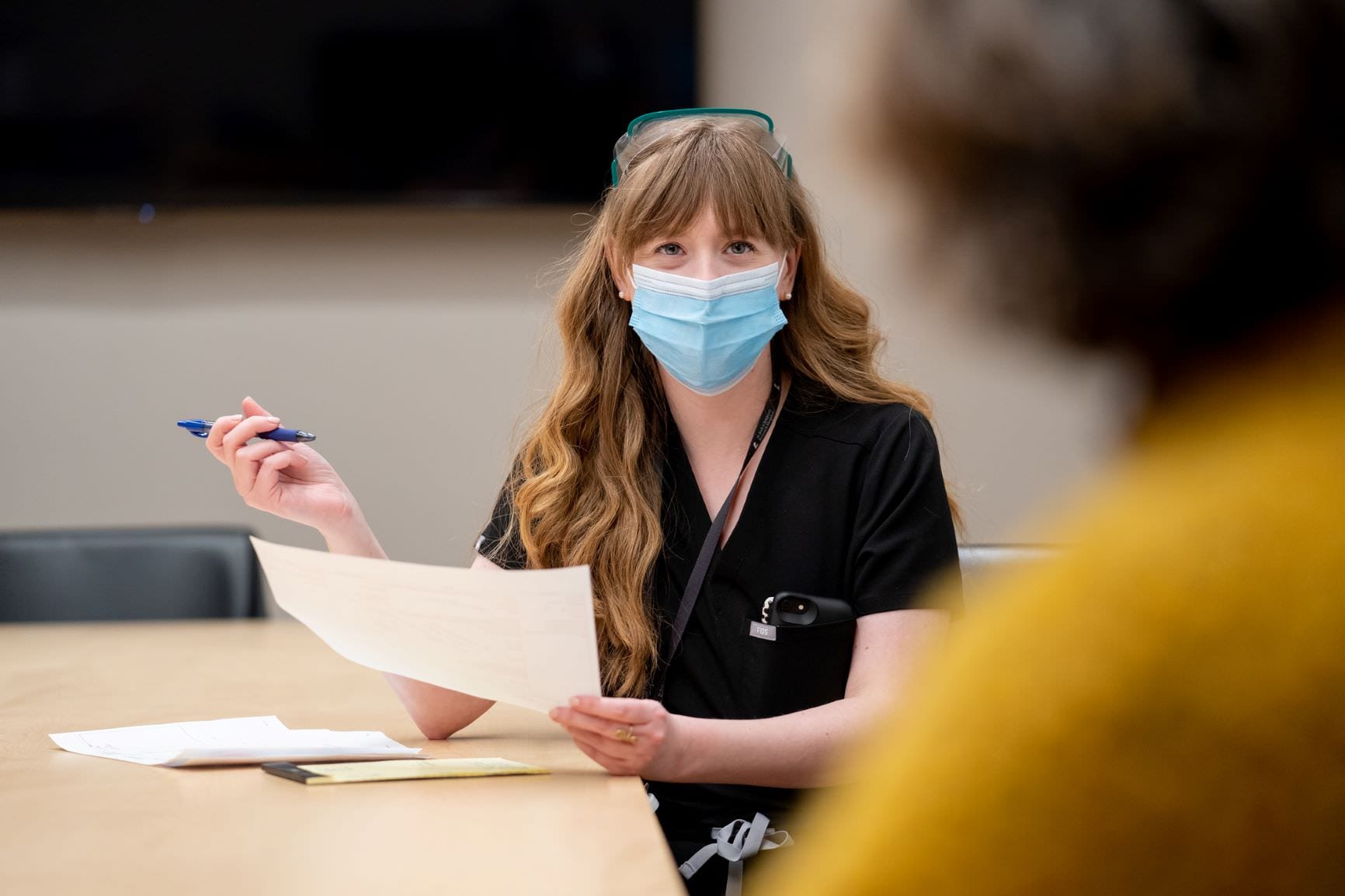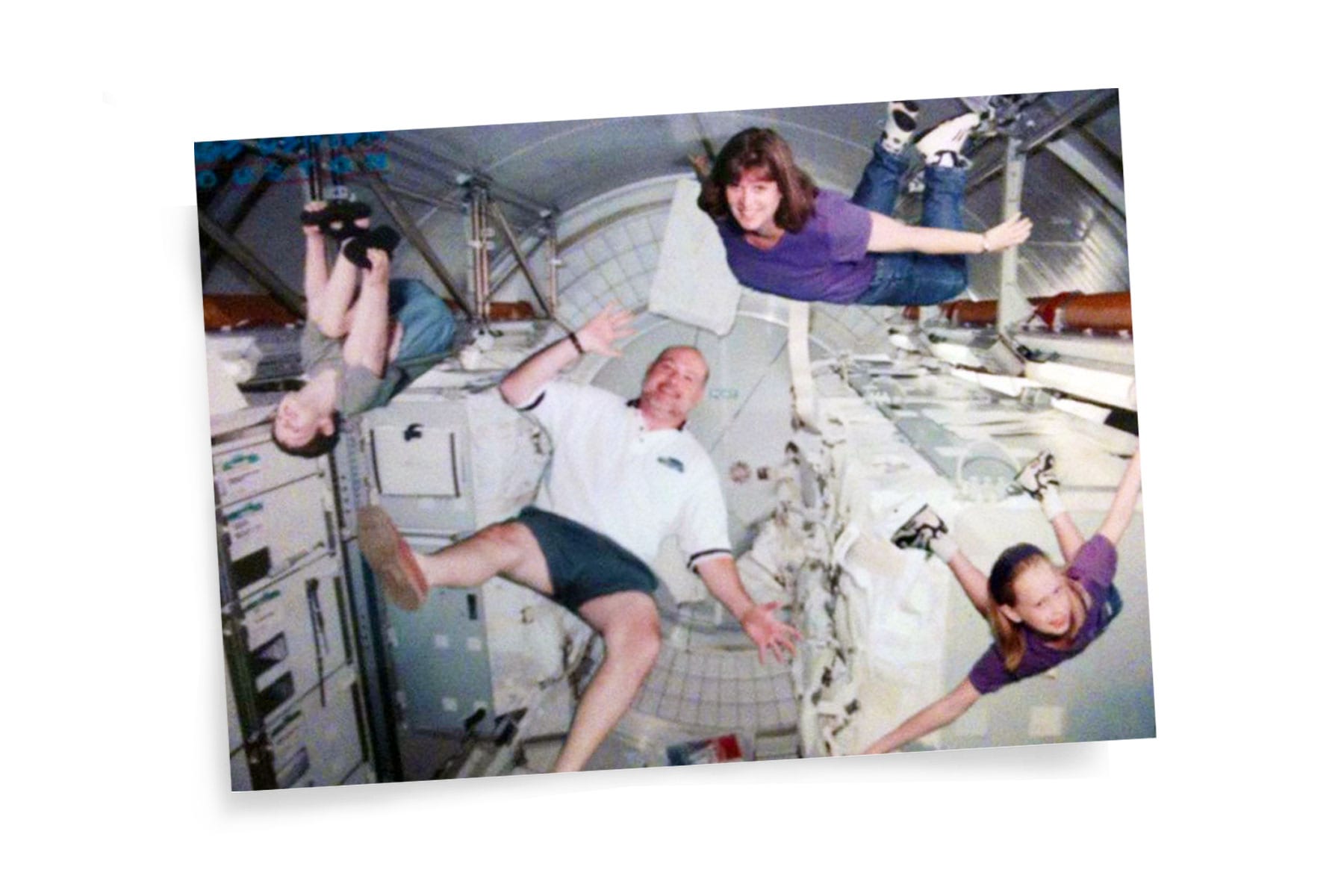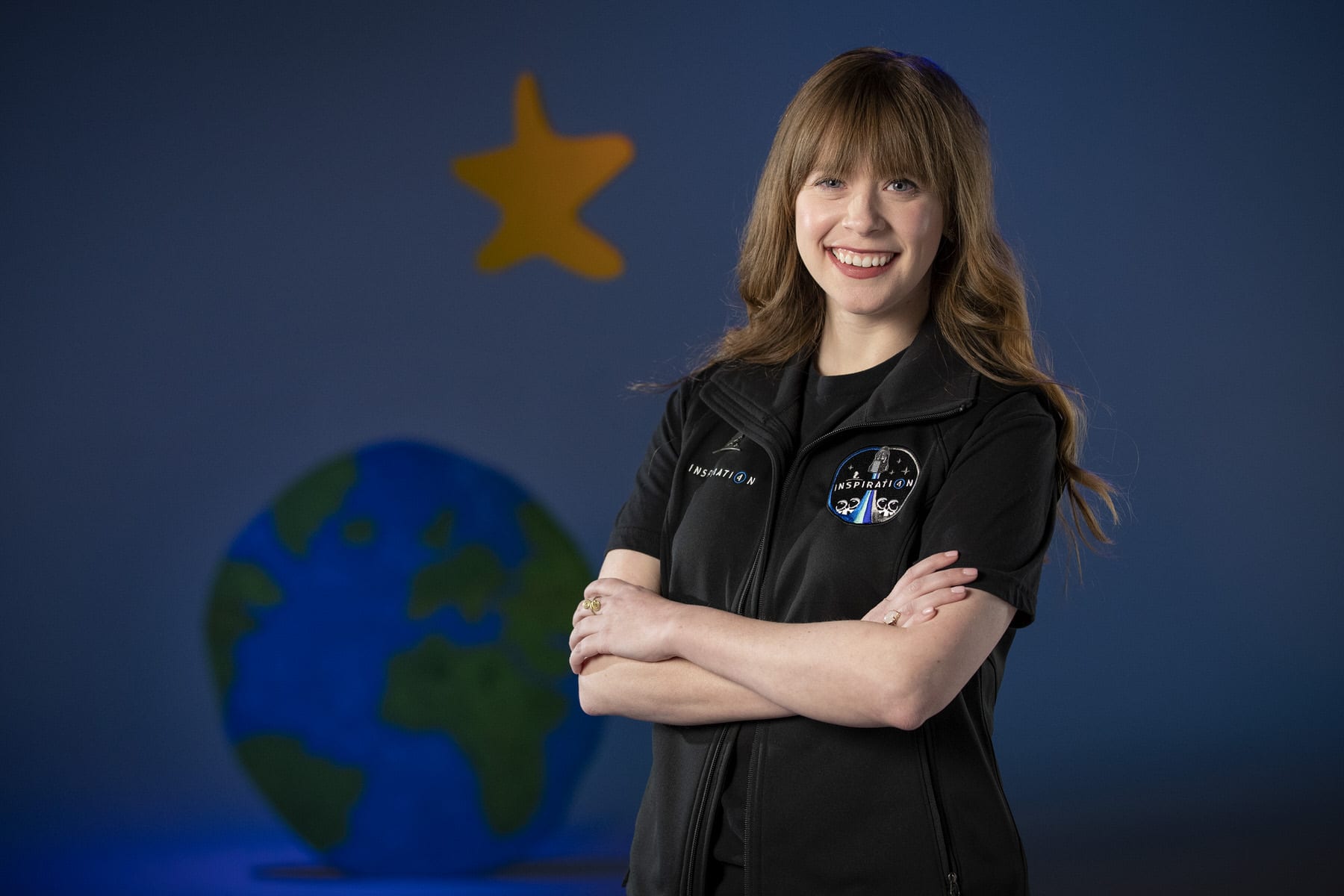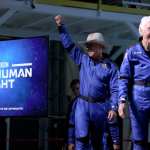*Correction appended.
This year, the once-restricted world of space travel is about to open up in a way the nation has never seen, and a 29-year-old woman will help usher in that change.
Hayley Arceneaux, a physician assistant at St. Jude Children’s Research Hospital in Memphis, was the first person selected last week to participate in the country’s first commercial spaceflight, scheduled to take off in the fall from Kennedy Space Center in Florida aboard a SpaceX rocket bound for Earth’s orbit.
The crew will all be non-astronauts, led by billionaire Jared Isaacman, who bought the flight from SpaceX in January and set aside two seats for St. Jude. Arceneaux, who was treated at St. Jude for bone cancer when she was 10, will join Isaacman and two other passengers who have not yet been announced on the flight. One will be a sweepstakes winner as part of a campaign to raise $200 million in donations for St. Jude.
Isaacman had previously said he wanted to give the seat to a frontline health care worker and someone who was a cancer survivor. Arceneaux, who started working at the hospital early last year with children who have leukemia and lymphoma, got an out-of-the-blue call in early January asking if she’d take the first seat.
“Yes! Please!” she replied, before agreeing to ask her mom first.
“[My mom], Colleen, is a tough lady, she has been through a lot. And I love to travel, I love going to new places, and so while this was so surprising to hear, at the same time, it kind of fit,” Arceneaux told The 19th. “When I told her about this, she was in total agreement that I couldn’t pass it up.”
With that “yes,” Arceneaux also agreed to shatter some existing limitations in the rapidly expanding industry of space travel.
Under current NASA medical guidelines, Arceneaux would have not been able to participate in the mission: She has an artificial joint in her leg and a titanium rod in her left thigh bone stemming from her treatment. She spent a year undergoing intensive chemotherapy and surgery to remove a lump that had formed on her left knee. She had to learn to walk again.
Astronauts undergo stringent physical tests to qualify for flight, and a prosthesis would have disqualified her for a mission if it weren’t for the commercial nature of the flight. Women were initially excluded from spaceflight because of assumptions around physical fitness and gendered expectations. Although space is becoming more diverse — about half of the new astronaut class is made up of women — just 40 years ago, American women hadn’t flown to space at all. Even now, only about 12 percent of all the astronauts in the world who have been to space have been women; SpaceX, for example, has only launched one woman since it started operating missions last year.
Arceneaux would be the youngest American to go to space, as well as the first pediatric cancer patient. She will also be among the first civilian American women to reach space, following Anousheh Ansari, who flew to the ISS in 2006. Beth Moses, who flew on a suborbital flight in 2019 and is considered by some to have been a civilian when she flew, is a professional commercial astronaut. Christa McAuliffe, the first civilian woman selected to go to space, tragically died shortly after take-off in the Space Shuttle Challenger explosion that claimed seven lives in 1986.
“Women belong in space … I’m not going to be the last,” Arceneaux said. “And I am incredibly excited to represent women, and then represent those who aren’t physically perfect.”
Arceneaux’s experience at St. Jude — where she grew up playing pranks on staff and organizing dance recitals — marked her in such a way that she declared early on that she wanted to work there. In the years since, the occupations changed. Maybe she’d be a doctor, a nurse, or maybe a researcher, a fundraiser, a dietician. She eventually landed on physician assistant.

Since finding out about the flight, Arceneaux has become quite popular with patients who want to hear about her mission. She has already been to SpaceX’s California headquarters a few times, and she’ll be in Florida to watch a launch later this spring before her own takes off. She also has plenty of preparations ahead: centrifuge training to prepare for G-force, simulations in the capsule and learning the principles of orbital mechanics.
She will also serve as the chief medical officer on the mission.
Arceneaux will be in space about three to four days circling Earth before splashing down off the Florida coast.
She said she’s most excited about serving as a beacon of hope for other cancer patients who often don’t see themselves represented in historic milestones. The mission is aptly named “Inspiration4.”
Just recently, a mother and daughter approached Arceneaux at St. Jude and asked if she was the Hayley they’d heard about who was going to space. The little girl had just had a difficult night and she confided in Arceneaux that she was discouraged because she couldn’t run or jump.
Arceneaux perked up. “I can’t run or jump, either, but it’s not stopping me from going in space,” she told her.
“I hope that that shows them to not limit themselves,” Arceneaux said, “because they really can do more than they even imagine.”

As Arceneaux prepares for the mission, her family is excited to see her take on the responsibility. Her brother and sister-in-law are both aerospace engineers in Alabama, and they’ve helped reassure her about the safety of the flight. Her dad, too, instilled a big love of space in Arceneaux when she was a kid, encouraging her to watch space movies like “Apollo 13” and visit the Kennedy Space Center in Florida, which she did when she was younger.
She has a photo with her parents and brother in front of a green screen floating in what appears to be the inside of the International Space Station. It won’t be too different from what Arceneaux will do from orbit inside SpaceX’s Dragon capsule.
Ahead of the flight, she is also preparing to take something into space with her that holds some significance for her family. Three years ago, Arceneaux’s father, Howard, died of kidney cancer. She said whatever she decides to take, it’ll be to honor him.
Correction: An earlier version of this article mistakenly stated that Hayley Arceneaux would be the first civilian American woman in space.






